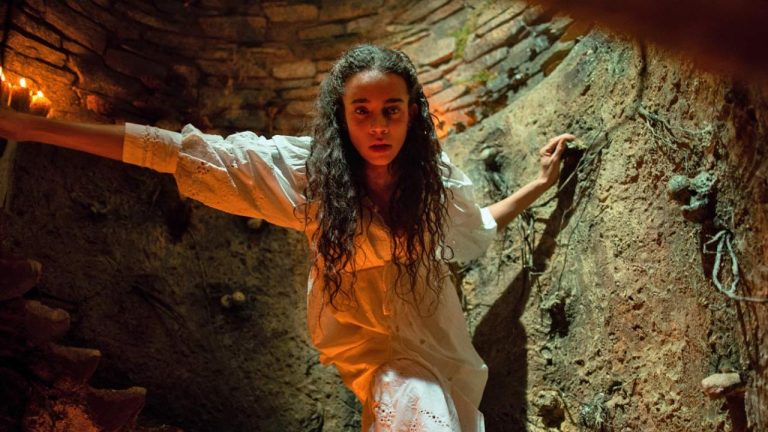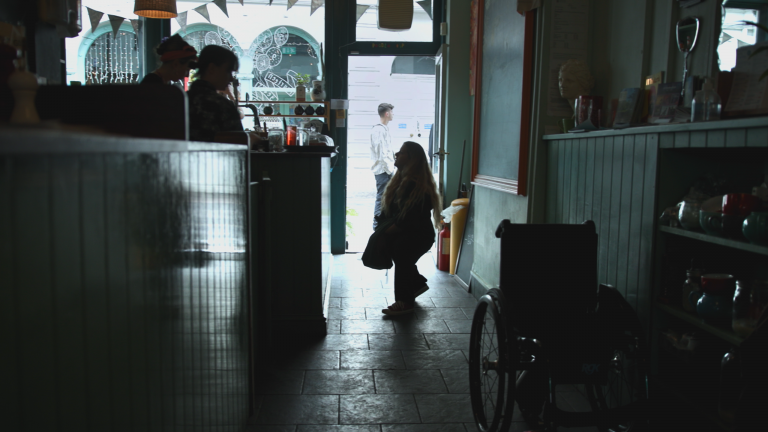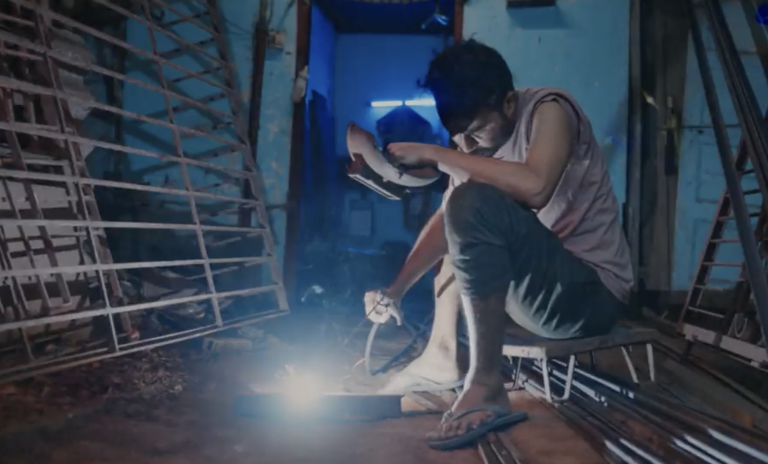Carine Tardieu’s “The Ties That Bind Us” opens with the perspective of the middle-aged Sandra (Valeria Bruni-Tedeschi), who’s suddenly tasked with looking after her neighbor, Cecile’s son, Elliott (Cesar Botti), for just a couple of hours. Sandra is initially wary but accepts the request. Cecile dies of childbirth complications. The film unfolds over the first two years of her daughter Lucille’s life. Intimacy in various levels and forms grows not just between Sandra and Elliott but his entire family. His bereaved, confused, and guilt-stricken father, Alex (Pio Marmaï), can barely put himself together. Only later does Sandra find out Alex isn’t Elliott’s biological father. But that doesn’t matter.
The film is interested in letting the idea of a family branch out and be cognizant of failings that can be redressed if one is porous to what’s healthy for either one’s child or partner. The sheer honesty and maturity with which Tardieu handles sensitive, emotional terrain is refreshing and elevates what could have been a standard-template drama by several notches.
What shines throughout the film is also its emotional precision. It is wise and aware of the many complex, jagged moods and whims we have. We may not know exactly the depth of our lacking. It can take a stranger to reveal it to us. Kindness and warm guidance emanate from all sorts of corners. It’s up to us whether we accept or reject the truth as a shared insight or in bitterness. One can get wholly lost in a muck of self-pity and self-loathing. Alex is almost instinctively wading back into a slew of mistakes and misjudgments. Sandra keeps shining the light on the path he should take or at least acknowledge.
Alex wallows in misery and grief. He is determined in his opinion that it’s just him who’s accursed with a terrible fate, that he is always subject to doom and despair. ‘Can’t something ever turn happy and shiny for him, for once?’ he laments. Sandra gives him the jolt of a broader perspective, whereby he can be thankful for the brighter, expectant side of life.

It’s not all so forlorn, she gently pleads initially and gradually gets firmer and direct with him. She exhorts him to steel himself and square himself up. He must be open to and embrace all that life has yet to offer him. He only makes it worse for his kids if he shuts himself up in a pit of dejection and guilt. At least he has them in his life, who shower him with love and needy, affectionate anticipation. Not all is lost as she nudges him to cheer up while lending ample space for his mourning.
An adaptation of Alice Ferney’s novel L’Intimité, “The Ties That Bind Us,” is an astute, profoundly compassionate exploration of varied nodes in relationships, especially alert to the seemingly small moments and unpicking their momentous impact. A whiplash of personal realization can come through in the crack of a tiny moment. Suddenly, one is struck with the severe but necessary truth of where one stands within a particular relationship. Either one confronts it despite the heartache or chooses to persist nevertheless. It’s an individual choice with multiple ramifications, as is inevitable. Denial would only slowly but surely eat away at oneself and the other.
There are innumerable dimensions of emotional connections. They can take the most unexpected, warm routes. Though the initial slant of the film in viewing Sandra as a child-averse independent woman who runs a bookstore devoted to feminist literature practically borders on generous cliches, the character beautifully expands and comes alive with rich, extraordinary textures in Valeria Bruni Tedeschi’s immensely endearing performance. She anchors this warm, glowing film.
The material itself has a lot of self-awareness. It gives characters the scope to look within and be susceptible to errors without casting a harsh glare of judgment on them. It is attuned to a passing exchange and mines an abundance of authenticity. “The Ties That Bind Us” swivels around forging new kinds of families, rethinking the idea of stratified identity and relationships with compassion and generosity. Life’s all about accepting change and moving on with grace and honesty while never shutting oneself out from continually reshaping the shifting boundations of bonds.




![Haxan [1922] Review – A Bewitchingly Bizarre and Rationalistic Take on the Horrors of Middle Ages](https://79468c92.delivery.rocketcdn.me/wp-content/uploads/2020/03/Haxan-1922-768x432.jpg)
![Okja [2017]: A Remarkably Powerful Eco-Fable](https://79468c92.delivery.rocketcdn.me/wp-content/uploads/2017/07/cover-768x432.jpg)

![Anxious People [2021] Netflix Review: A Highly-engaging Dramedy where Compassion takes the Cake](https://79468c92.delivery.rocketcdn.me/wp-content/uploads/2021/12/Anxious-People-2021-768x384.jpeg)
